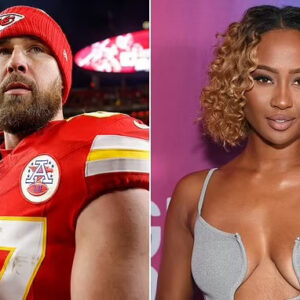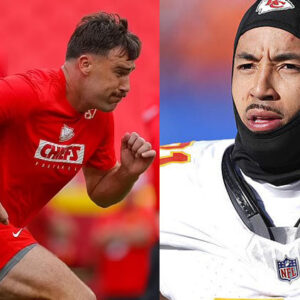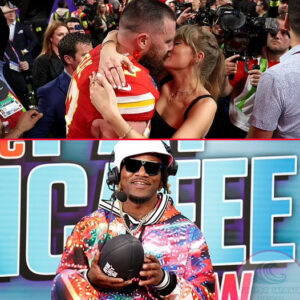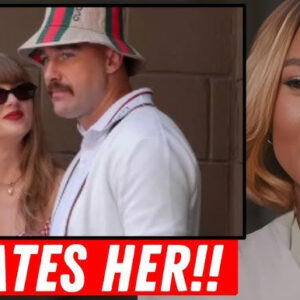Bon Jovi Admits He Regrets Richie Sambora’s Absence From Band Every Day, Speaks Up on Why He Wrote ‘Desperate’ Song About George Floyd
Jon also stresses importance of staying unbiased on the new album “2020.”

During a conversation with Rock Antenne, Jon Bon Jovi talked about the new Bon Jovi record, “2020.”The record is out now, you can check it out here via Amazon.
When the interviewer said he “never heard a more serious, and a more desperate Bon Jovi song ever” than “American Reckoning,” the track on the album dedicated to George Floyd, Jon commented (transcribed by UG):
“I think it’s probably one of my best, I’m very proud of it and blessed to have written it. And it’s a difficult subject matter.
“I was aware of all of the other shootings as they were reported on the news, I’ve been aware of the other George Floyds that came before, but for some reason, I was never moved to write it.
“Maybe it’s because of the COVID lockdown, maybe it’s because we were all watching the news every day, all day. Maybe it’s because of the filming of it and the recording of it, you could hear it and see it, and it moved you so.
“But when I saw this man in that situation calling out for his mom with his last breath, it moved me emotionally. And so I wrote the song, and I had to be very careful to get it right.
“And so I wrote it, I played it for my wife; she said, ‘It’s a great verse, the chorus isn’t good enough.’ I went back. I didn’t just say, ‘I’m right, you’re wrong.’ I went back and I worked on it.
“And then I played it for several people of influence, real people of influence, and I played it for them and got their opinions so that I could defend every word.
“And then when we went in the studio, Tico [Torres, drums] fought me on it to make sure that he pushed me to title it ‘American Reckoning,’ and it was Tico, you know, that was a lyric in the song, it wasn’t the title.
“And I agreed wholeheartedly when he and John [Shanks, producer], they pushed me in the studio – because it was ‘I Can’t Breathe,’ and they said ‘American Reckoning.’ And then it hit me and I said, ‘That’s the title – it’s even stronger.'”
Even though the record has been pretty much done and finished before corona started, it still seems to be very critical, and maybe a difficult record for you to write…
“It actually wasn’t difficult. When we went down to Nashville in March of 2019, what I believed to have been the album was in retrospect just the first batch of songs.
“Because ‘Let It Rain,’ ‘Lower the Flag,’ ‘Do What You Can,’ ‘American Reckoning,’ they were all written after the fact, so the album title, ‘2020,’ was originally just tongue-in-cheek, to be honest.
“I had suggested it to the band because I thought, ‘Well, it’s cute in an election year if it looked like a bumper sticker or a T-shirt.’ But as the songs took on a deeper meaning, ‘2020’ became a topical record, and I started to see all of these events unfolding that gave me something to write about and that’s what I’ve gravitated towards.
“Then I took the position that I am witness to history, not taking sides, just as though I were an unbiased reporter stating the facts, and, ‘This is what happened, this is what I’m writing about.’
“And with that in mind, I really enjoyed the writing process and pushed myself to write honestly, openly, and most importantly, unbiasedly.
“I didn’t want to show any bias because it doesn’t mean that if you’re on the opposite end of an issue that you’re wrong. It’s your opinion, the reporter’s opinion, nothing wrong, just two opinions, so I just wanted to state the facts.”
Was that, being unbiased, was that probably the hardest thing to do?
“No. Because I never would think that my word is any better than the listener, or those who are on the other side of any of the topics.
“I write a song like ‘Lower the Flag,’ and it’s about one night I went to bed, and there had been a shooting, and I watched it on the news, and in the morning when the reporter came back on, he was talking about the shooting, he mentioned another city.
“And so I turned around and said, ‘Oh no, you got it all wrong.’ And then I realized another shooting had happened, and these shootings were being taken for granted so much so that it almost seemed like the reporter was saying, ‘We’ll be right back with the weather, and sports is coming up.’
“And it moved me so that I thought, ‘What about the poor family? Their lives have now been ruined…’ And so I had to write the song, but never in the song do I take sides and say, ‘Guns are bad.’
“That’s not the position – my position was to say, ‘This happened. I feel terrible. How would you feel if this happened to your family?’ End of conversation.”
It seems when I looked through the song list and the writing credits. You wrote 95% of the record by yourself, so it must be a very personal record for you.
“Yeah, you know, on every record, if I don’t write it by myself, I co-write it. The catalyst of this stuff generally has got to come from me because I’ve got to be the driver of the subject.
“I’ve got to shape the record. So when I collaborate, I enjoy it immensely, but I’m still gonna have to drive, you know?
“With these songs, I couldn’t have seen it any other way. The two that I did co-write, I welcome them and they wouldn’t have been the same had I written them by myself, but the rest of the record I did write by myself, and I couldn’t have seen it be in any other way.”
Is there anything within this career where you would say, ‘I should have done this differently’?
“Very few things – honest to god, very few things. Some things happened that were the catalyst for why other good things happened, you know?
“There’s not a day that goes by that I don’t wish that Richie [Sambora] had his life together and was still in the band, and you know, in a weird way it’s because of his inability to get it together anymore that we went on and wrote ‘This House Is Not for Sale.’
“It was a very strong record, and that I’m able to write songs like this… Maybe we would’ve gotten lazy – I don’t know where we would have gone, but through all that pain and heartbreak came this.
“Jokingly I said that the only thing I ever regretted in my career was not having met Frank Sinatra. I wasn’t ready for it at the time. Now what I’d give to have met him – would’ve been awesome.”
Relative Articles
None found





